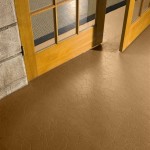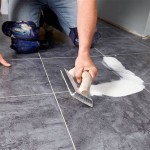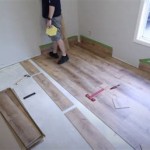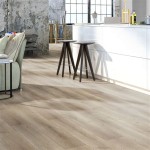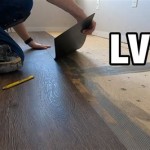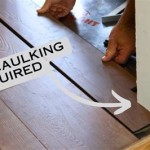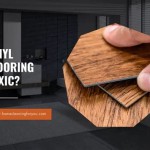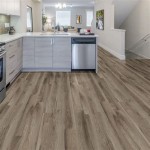What Is The Best Flooring To Put In a Basement?
Basements present unique challenges when it comes to flooring. Due to their location below ground, they are prone to moisture, humidity, and temperature fluctuations. Choosing the right flooring is crucial for creating a comfortable, functional, and long-lasting space. Several factors must be considered, including the basement's intended use, existing moisture levels, and budget.
Moisture Resistance
One of the most critical factors to consider when choosing basement flooring is its resistance to moisture. Concrete subfloors in basements are porous and can allow moisture to seep through, leading to problems like mold, mildew, and flooring damage. Opting for materials specifically designed to withstand moisture is paramount for a successful basement flooring installation.
Some materials are inherently more moisture-resistant than others. Ceramic and porcelain tiles, for instance, are virtually impervious to water. Engineered vinyl plank (EVP) and luxury vinyl plank (LVP) are also excellent choices, offering both water resistance and appealing aesthetics. Sheet vinyl is another budget-friendly option that provides good protection against moisture.
Durability and Comfort
Basements often serve multiple purposes, from recreational areas and home gyms to extra bedrooms or storage spaces. The flooring should be durable enough to withstand the anticipated traffic and activities. Concrete, though inherently durable, can be cold and uncomfortable underfoot. Adding a layer of flooring not only enhances the look of the space but also improves comfort.
Carpeting can add warmth and comfort, but it's essential to choose a moisture-resistant variety designed specifically for basements. Look for carpets made with synthetic fibers like polypropylene or nylon, which are less susceptible to moisture damage than natural fibers. Adding a moisture barrier underneath the carpet padding is also a good preventative measure.
For areas where spills are likely, such as laundry rooms or play areas, tile or vinyl flooring is a more practical choice. These materials are easy to clean and maintain, making them ideal for high-traffic areas.
Cost and Installation
Budget is always a consideration when undertaking home improvement projects. Basement flooring options range in price from affordable sheet vinyl to more expensive options like epoxy coatings or high-end engineered wood. Installation costs also vary depending on the chosen material and the complexity of the project.
Some flooring types are easier to install than others. Click-lock vinyl planks, for instance, can often be installed as a DIY project, saving on labor costs. Tile installation, on the other hand, typically requires the expertise of a professional, adding to the overall project expense.
It's important to consider both material and installation costs when determining the overall budget. Getting quotes from multiple contractors can help ensure a competitive price and avoid unexpected expenses.
Subfloor Preparation
Proper subfloor preparation is essential for the success of any flooring installation, especially in basements. The concrete subfloor should be clean, level, and free of any cracks or imperfections. Addressing any moisture issues before installing the flooring is critical to prevent future problems.
Applying a waterproof sealant to the concrete can further protect against moisture intrusion. In cases where moisture is a significant concern, installing a subfloor system designed for basements can create an additional layer of protection and improve insulation.
Aesthetics and Style
While functionality is paramount in basement flooring, aesthetics also play a role. The chosen flooring should complement the overall design and style of the basement space. A wide variety of colors, patterns, and textures are available in various flooring materials, allowing homeowners to achieve their desired aesthetic.
Wood-look vinyl planks, for example, offer the warmth and beauty of hardwood without the susceptibility to moisture damage. Ceramic and porcelain tiles come in a vast array of styles, mimicking natural stone, wood, or concrete, offering design versatility. Ultimately, the chosen flooring should create a cohesive and visually appealing space.
Basement Use and Lifestyle
The intended use of the basement significantly influences the best flooring choice. A basement used primarily for storage will have different flooring requirements than a finished basement used as a living space. Consider how the space will be used and choose flooring that can withstand the anticipated activity levels.
For example, a basement playroom might benefit from the cushioning and durability of rubber flooring. A home theater, on the other hand, might be better suited to carpeting for sound absorption and a cozy atmosphere. Considering lifestyle factors, such as pets or children, is also important when making a flooring selection.

What Is The Best Flooring For Basements Get Pros And Cons

The Best Flooring Options For Your Basement From Forest Llc

What Are The Best Flooring For Basement In Homes

The Best Flooring Options For Your Basement America

Best Basement Flooring Options Forbes Home

What Is The Best Flooring To Put On A Concrete Basement Floor

Best Basement Flooring Options Liquidators

Basement Flooring Guide

Best Basement Flooring The Warmest Floor Covering Is Cork

How To Choose The Right Floor For Your Basement Gc Flooring Pros
See Also
